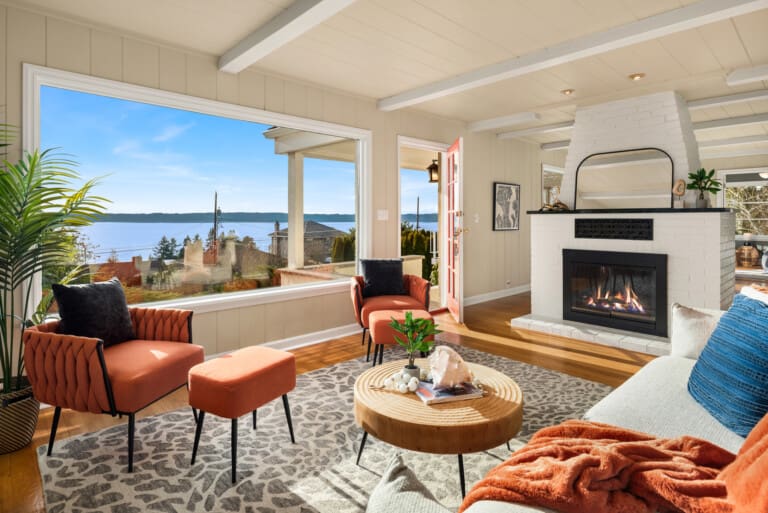How do you choose a really good mortgage lender? Is it based on the best rate they are going to give me? Rate is very important, and where most people get caught up. A few percentage points can mean tens of thousands of dollars over the life of your loan.
But guess what? Your lender does not determine your rate. Your credit score and your debt-to-income ratio based on Fannie Mae guidelines are what really create your rate. What you need to pay attention to is:
How much is this lender going to charge me for the loan?
This is where you need to be aggressive and ask hard questions as to what those fees are and how much they are going to cost you over the life of your loan. And once again how quickly can they close in this market.
Shop around and listen to your real estate professional!
In your love life you did not settle on the first Tom, Dick, or Mary that sent you roses. You stalked their Facebook, checked their credit score, and brought them before a tribunal of your besties before you decided this lover was going to be the one to permanently butter your bread. You and your lender are in a long term relationship as well, so you should put them under equal scrutiny.
Where do you find lenders during the search? Ask for referrals from friends, co-workers, and your real estate broker and start the investigation. The majority of people go with the first person they talk to in their bank branch. Listen: This is the most important buying decision you are going to make. Talk to at least three people based on the referrals above. You can have your credit run three times by a lender for the purpose of buying a home before it negatively affects your credit score.
You need to determine who will give you the best combination of service, rate, and closing costs. AND in a competitive market, you also need a lender that can close in FOUR weeks. Hint: Going online isn’t necessarily faster than dealing with people face-to-face. Online lenders can barely close in 60 days, much less four weeks.
Learn what you will paying for: What are closing costs? Pre-paids?
Your fees will mostly be assessed in what are known as closing costs. Closing costs vary from lender to lender. They are items such as loan origination charges, insurance, points, etc. You should know what all of these fees are and how they are going to affect you.
For example, spending the money up front to pay your mortgage insurance or buying down your rate may cost a few thousand dollars in closing costs. However, it can save you significantly more over the life of the loan IF you are planning on staying in the home for more than FIVE years.
These are some of the types of costs that you should discuss with your lender. Part of them giving you good service is disclosing the true costs to get a loan for your dream home.
What else do you have to pay for? What are pre-paids? A lot of online lenders will leave out pre-paids from your closing costs. Suddenly, you are at the closing table and you need an extra $4,000 – $5,000 to close on the house for pre-paids.
Pre-paids is what you have to pay IN ADDITION to your closing costs. They include the cost of your homeowners insurance, reimbursing the seller for the taxes they paid, HOA fees (if applicable), and other goodies no one ever talks about. Did your lender include an estimate on their pre-paids? If not, it doens’t mean you won’t be on the hook for them. You will.
Learn the difference between a Mortgage Broker and a Mortgage Banker.
The two types of lenders that most people will work with are mortgage brokers and mortgage banks. Mortgage brokers work as the middle person between the bank and the borrower. They get their loan approvals on the secondary wholesale market. The broker then chooses a lender for the borrower based on the current rate and closing times.
This type of lender often has some extra flexibility in getting a borrower approved, since they have a pool of lenders to choose from. The downside to this is that they often have less control over the processing of the loan. If you are going to use a mortgage broker, they must be experienced.
Mortgage banks usually have a mortgage banker, loan officer, or mortgage consultant that works directly with the borrower. These banks vary in size from the national “too big to fail” type banks to smaller regional banks or credit unions. They do all of their processing in-house and have greater control over the processing of your loan.
I suggest my clients work with a mortgage broker/consultant that represents a well known, local mortgage bank.
This type of lender is generally going to have more control over the processing of your loan from start to finish. Often the underwriter, appraisal and quality control departments are in the same city or maybe even the same building. When problems arise—and they will—it is much easier to resolve them quickly. Whoever you choose as your lender, they need to be prepared, communicative, and have plans in action to keep your loan moving forward toward closing. That is their job.
How do you determine good service from a lender?
Not all lenders are created equal. I coach and advise on the selection, but who you choose to work with on your loan is your prerogative. There are a few lenders that I refuse to work with, and if my clients choose to stick with them after I suggest otherwise, then we are probably not a good match. That is how important it is to me that you have a solid lender in your corner.
I would challenge you to ask your prospective lender these questions. Are you available assist on weekends or after regular business hours? Will you come to the signing? Are you going to give weekly loan status updates? The answers to these questions will not only set your expectations of the lender, but they will give you a sense of how hard this person is going to work for you. Do your homework and make a smart decision.
If you are going to choose a mortgage broker or a large national bank or credit union, you can still get a great loan package. Your most important job as a home buyer is to ensure that you are working with someone highly experienced and proactive at each stage. Your mortgage broker or loan officer is especially critical, as they have to stay one step ahead in the transaction. I have worked with some excellent loan officers from large institutions that have met all my expectations.
Financing your loan can be a tough process but if you follow the advice above you can make a smart and informed decision. I want you to receive the strongest and most affordable loan package possible. Please contact me if you would like further information or if you would like to be connected to a top lender in the area.



























